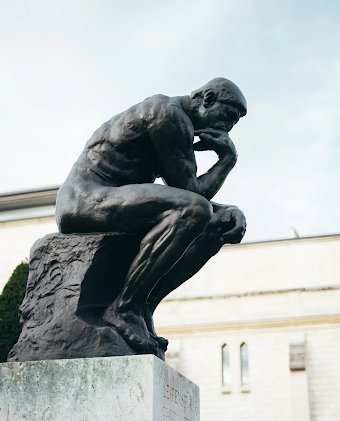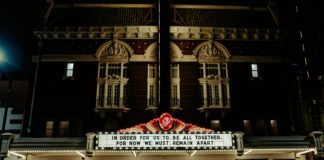Acceptance is not surrender.
That idea seems such a clear aphorism. Accepting what we cannot change and summoning the courage to change what we can is, after all, among the wisdom that binds all the ancient scriptures, from the Talmud to the Bhagavad Gita to the Gospels.
But making this distinction, through the early days of paralyzing fear, into the moments of euphoria wrought by early success, and then during the plummet into depression that followed, was the ultimate leadership trial.
As the summer rolled into the fall, there was much to hold me back, trapped in the existential fog. The relentless, denialist, and partisan-fueled resistance to the use of masks continued. The toxicity of our national politics descended into local politics, particularly as the poorly conceived slogan “Defund the Police” was twisted into fear mongering. And the steady march of the COVID-19 death toll continued to numb.
Of course there were rays of sunlight breaking through the fog. The elections brought relief. While I’m independent and have voted for as many Republicans as Democrats, the depths of misery exacerbated by the White House incumbent had me rejoicing at the election of Joe Biden and Kamala Harris. I do, of course, recognize the way the virtual space of our new digital reality can nurture the worst within us as well as create so much opportunity to right old wrongs. As I write these words, my rejoicing about the election is tempered by the spectacle of destructive protest shutting down the U.S. Capitol. But I still take heart that Georgia just elected both its first Black and first Jewish senators, with the help of a truly incredible Black female leader in Stacey Abrams. But our nation and the republic will heal, that I am confident of – we have faced strife and extreme division before and we will conquer it again.
Also in November, drugmaker Pfizer and BioNTech announced their consortium would seek emergency authorization for the first COVID-19 vaccine, the first mRNA vaccine in history. The prospect that we might actually slay the virus looked all the more real. While unemployment numbers remained stark — and the warring political classes left millions without the lifelines common in every other developed democracy — the economy’s recovery was beating expectations.
At data.world, meanwhile, in late September I announced our fourth and largest funding round of $26 million. As my wife Debra had predicted, the pandemic actually accelerated our growth and that attracted investors, especially after our new customer, Prologis (the global leader in logistics real estate), invested in us. I realized that data literacy and data cataloging are more important than ever as our number of enterprise users shot up 1,900 percent over the figures from just a year earlier. We were still meeting or exceeding our targets and our workforce had grown almost 40 percent by the end of November, breaking above that in December. As of today, we have 83 employees, up from 59 at the start of the pandemic.
An emerging acceptance of what will not be the same
So it was about this time that I began moving away from an attitude of struggle, however necessary, that centered on making the best of a challenging reality. My new and emerging mindset focused on accepting what would never be the same, like much of the analog economy, and on to the changes that would be with us long beyond the pandemic.
As a thought exercise, imagine that a pandemic-sized catastrophe occurred: a high energy pulse from outer space for example, had all but ruined the “new” economy. We could still make calls on landline phones. We could write letters. Manufacturing could continue. But in this scenario, the $158.2 billion Software as a Service, or SaaS, sector, which is my business, had all but collapsed. The internet no longer existed, and gone with it were Zoom, email, every web-based business you can think of including Amazon, Uber, online banking, telemedicine and the list goes on….. A calamity of this nature would have pulled the world back into the past, in more ways than we can imagine.
Not to don rose-colored glasses, but in a certain sense we should be thankful that the reverse happened. The pandemic has ravaged the “old” economy and certainly the destruction is widespread and the imperative to repair the many damaged lives and livelihoods is before us. But the pandemic also accelerated the arrival of our digital future at a pace and speed we never could never have anticipated. This we must embrace, and it is companies like data.world, and cities like Austin, which must take the enlightened lead in this global acceptance of a future that showed up so far ahead of schedule.
In many ways, opening up to the acceptance — the embrace — of this new reality was spurred on by small things. As we learned more about the virus, we learned more about staying safe. As we did so, I shed some of my hermetic ways, seeing the friends and co-workers I missed most — outside, fully distanced, and only in very small groups of one to three. My son’s digital savvy flourished in the online learning environment, and he thrived in programming with just a little encouragement from me, a father who began programming at age 7. He was even hired as a programming tutor for a 9-year-old to help pay it forward.
Among the activities in which I had long wanted to participate, it was only with their migration online that I was able to do so for the first time. For example, I was able to attend the annual gala of the Anti-Defamation League in New York City. Would I have liked to participate in person? Of course. After all, I had been donating for many years and never been able to join. But doing so virtually underscored the reality that all of us have access to so much more than ever before. It took longer than the late informational theorist Marshall McLuhan expected, but his proverbial “Global Village” had finally arrived.
I was able to participate in meaningful civic activity in ways that I could not before, such as the White Men for Social Justice movement to which I was invited. I began to actively help Dr. Peniel Joseph with his Center for the Study of Race and Democracy at the University of Texas at Austin. I was attending political fundraisers every week, hosted by everyone from DJ Questlove to Stephen Colbert to Willie Nelson. I was able to literally “zoom” from meeting to meeting, constantly changing context — and sometimes shirts, from casual to dressy — without the timesink of a commute.
The point here, in all facets of our lives, is this word I keep returning to, access. Personally, we have all learned that there is so much more we can do to improve ourselves and serve others with the digital consciousness that the pandemic has, however painfully, instilled in every corner of society. Education will never be the same. Medicine has been fundamentally changed, by telemedicine in the case of access to physicians and by a new pace and standard in the case of vaccinology. Will the knowledge workers fleeing New York and the Silicon Valley to Austin and other emerging “Knowledge Cities” ever return? I’m not so sure.
Ubiquitous access is our new foundational reality
Of course, we will travel again. Of course, classrooms will again be central to children’s lives. I can hardly wait to go to a concert. We will even return to movie theaters (but only if they have the amenities of an Alamo Drafthouse). But access changes all of this.
When it comes to data.world and business leadership in this newly supercharged “next-generation” economy, we had out-performed our pre-pandemic expectations and really conquered the panic of the early pandemic. As I wrote about in my first essay on the “fear phase,” we entered the first lockdown in March with lofty goals and an aggressive plan for venture capital fundraising. And I wondered how we would fare.
As we moved into what I’ve called the “euphoria stage” of the pandemic, we not only reached our targets, we aced them. Suddenly, as a “distributed workforce” we had become more essential to our customers than ever before. I credit much of this success in the new operational mode which I’ve analogized to an innovative baton pass developed by the Japanese Olympic relay team. The team parted with old ways of on-the-track collaboration, with an underhand pass that did not break the runners’ stride. And this new efficiency won the team a silver medal in 2016.
Our data.world team found new efficiency as we mastered digital tools we’d long used as well new ones. We discovered all manner of new abilities and ways to access and support one another’s work and work flow. And we moved into this new reality, which will long outlast the ravages of COVID-19.
Ubiquitous access is here to stay. We will probably never return to a traditional Monday through Friday in the office. At data.world, our post-pandemic “normal” will likely bring us into the office just two days a week. This new hybrid world that blends the face-to-face with the virtual is only beginning to unfold. And the new tools we’ve discovered, as well as the consciousness that is emerging, will allow us to confront the social ills unmasked by the pandemic — from institutional racism to the digital divide in education to disparities in health care — as never before.
I’ve just concluded the most productive year I’ve had in decades. I’ve also learned more in the past year than even my most intense years in graduate school, or even the year that we took my prior startup Bazaarvoice public.
And among the lessons learned, one was key to this last stage of my leadership journey in a pandemic: the difference between surrender and acceptance.






